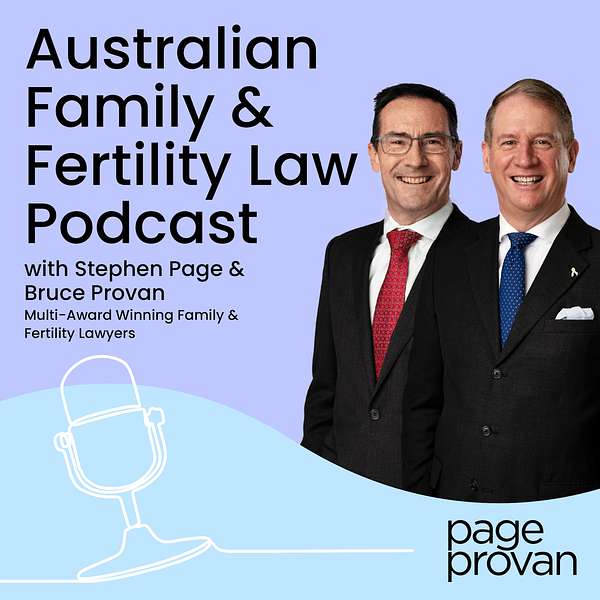
Australian Family and Fertility Law
Australian Family and Fertility Law
New South Wales Advances LGBTQIA+ Equality with the Equality Amendment Act 2024
In this podcast, Award Winning Surrogacy Lawyer, Stephen Page discusses the new Equality Amendment LGBQIA+ Act 2024 (NSW).
New South Wales Advances LGBTQIA+ Equality with the Equality Amendment Act 2024
In a landmark decision, New South Wales has passed the Equality Amendment Act 2024, a new law aiming to bolster the rights and protections of LGBTQIA+ individuals across the state. Announced in October and scheduled to take effect by January 1, 2025, this legislation aligns New South Wales with other Australian states in recognizing gender identity through self-identification and promoting equal rights for all sexual orientations. Stephen Page, a family and fertility lawyer, highlights the significance of these changes, noting the profound implications for LGBTQIA+ rights and inclusivity within Australia’s most populous state.
**Understanding the Equality Amendment Act**
The Equality Amendment Act 2024, also known as the LGBTQIA+ Equality Act, introduces several pivotal changes to the way gender and sexuality are recognized and protected under New South Wales law. This act primarily focuses on two transformative updates:
1. Self-Identification for Gender Recognition: No longer will transgender individuals be required to undergo surgery to legally affirm their gender identity. Instead, they can self-identify their gender, a process that acknowledges the personal journey of gender identity without forcing individuals to meet medical prerequisites.
2. Expanded Protections for LGBTQIA+ Individuals: In tandem with the gender recognition reforms, the act further establishes that sexual orientation should be treated with equal respect and dignity. This law marks a step toward eliminating discrimination and reinforcing protections for individuals based on their sexual orientation or gender identity.
Why Self-Identification Matters
At the heart of this act lies the idea of self-identification, a principle that has gained momentum globally in recent years. Self-identification means that individuals can determine their gender identity through personal affirmation, not by conforming to medical, surgical, or physical standards traditionally set by governing bodies. Previously, in New South Wales, transgender individuals had to undergo gender-affirming surgery to have their gender legally recognized. For many, this barrier was not only medically unnecessary but also a financial and emotional burden.
The right to self-identify validates individuals’ experiences of gender and places trust in personal autonomy, removing the demand for invasive procedures. Allowing self-identification can lead to broader acceptance, reduce stigmatization, and increase support for transgender rights at large. This move aligns New South Wales with the federal guidelines and other states in Australia, placing it on par with global standards seen in countries like Canada and parts of Europe.
Equality Beyond Gender: Protections for Sexual Orientation
The Equality Amendment Act 2024 also underscores New South Wales’s commitment to ensuring equal treatment of all sexual orientations under the law. This includes stronger legal protections and the reduction of discrimination in sectors ranging from employment and education to housing and healthcare. The goal is to ensure LGBTQIA+ individuals are protected across various facets of life, fostering a more inclusive society.
The significance of these protections cannot be understated. By legally reinforcing the equal treatment of sexual orientation, New South Wales promotes a culture that respects and acknowledges diverse sexual identities. This shift may inspire LGBTQIA+ youth to feel seen and valued and signals to the broader community that discrimination based on sexuality is not only unacceptable